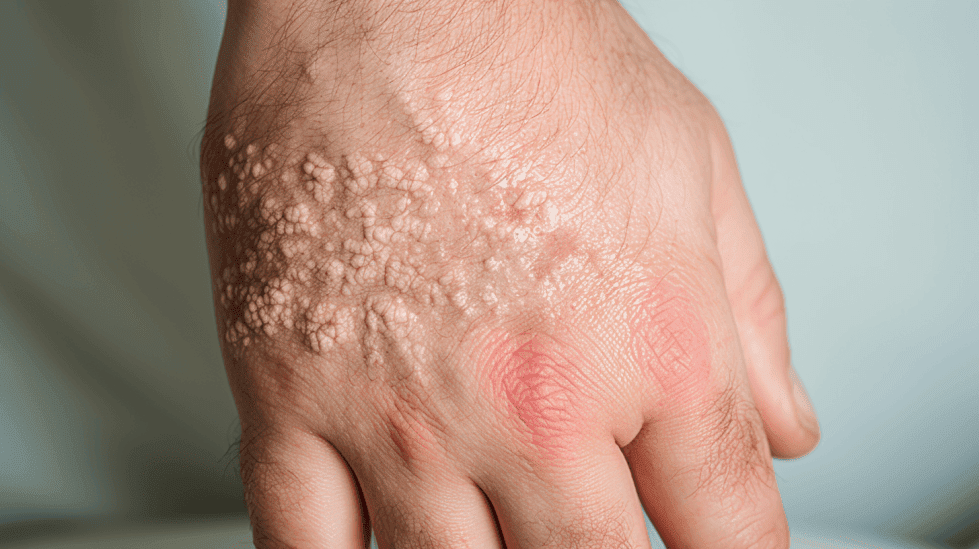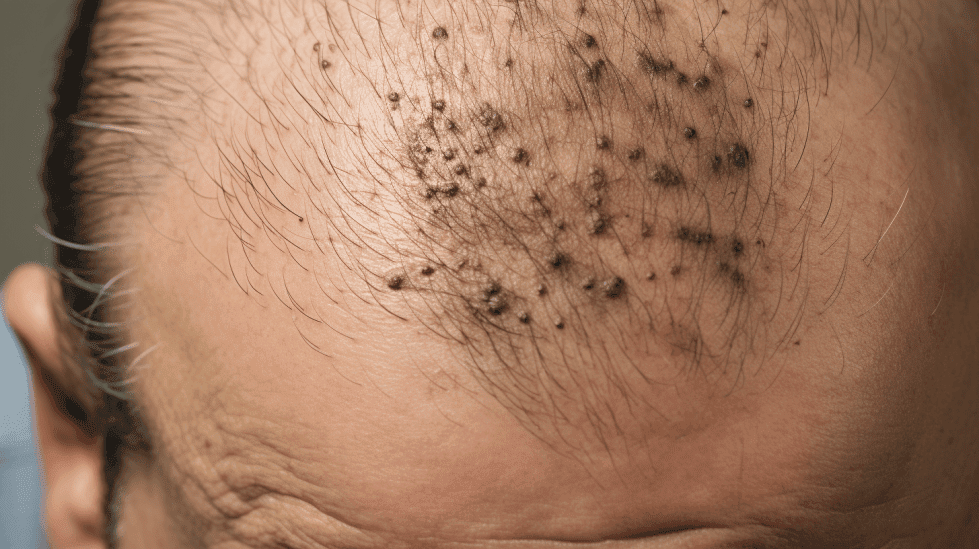Does Ringworm Cause Hair Loss
Ringworm is a common fungal infection that affects the skin, and in some cases, the scalp. Known as tinea capitis when it occurs on the scalp, this infection can cause temporary hair loss in the affected areas. It is especially common among children, but can occur in adults as well.
Initial symptoms of scalp ringworm include red, scaly patches accompanied by itching. As the infection progresses, it may lead to the formation of itchy, scaly bald patches where hair shafts become brittle and break off. It is important to identify and treat scalp ringworm promptly to prevent further hair loss and potential complications.

What Is Ringworm
Ringworm, also known as tinea, is a common fungal infection that affects different parts of the body, causing a characteristic circular rash. Despite its name, ringworm does not involve any worms; instead, it is caused by a group of fungi called dermatophytes that feed on the outer layers of the skin, hair, and nails.
These fungi thrive in warm, moist environments and can easily spread from one person to another through direct skin-to-skin contact or by sharing contaminated objects like towels, combs, and clothing. Animals, especially cats and dogs, can also be carriers of the infection and transmit it to humans through close contact or shared grooming tools. Mayo Clinic and Johns Hopkins Medicine provide detailed information about the causes and transmission of ringworm.
Ringworm infections can manifest in various forms depending on the body part they affect. Some common types include:
- Tinea corporis: Ringworm affecting the body, causing itchy, round rashes with clear skin in the middle.
- Tinea capitis: Ringworm affecting the scalp, leading to hair loss and scaly patches on the head.
- Tinea barbae: Ringworm infecting the beard area, causing itchiness, scaly spots, and hair loss.
- Tinea pedis: Commonly known as athlete’s foot, this type affects the feet, causing scaling, itching, and sometimes blisters.
Proper diagnosis of the specific type of ringworm is crucial for successful treatment, which usually involves antifungal creams, ointments or, in more severe cases, oral medications. Early identification and intervention can help prevent further spread and complications.
Hair Loss and Ringworm
Ringworm is a fungal infection that can affect various parts of the body, including the scalp. When it develops on the scalp, it can lead to hair loss, which is mainly caused by the fungal infection damaging the hair shafts.
How Ringworm Causes Hair Loss
The fungus responsible for ringworm, also known as tinea, feeds on keratin, a protein found in hair, nails, and skin. As the fungus grows and spreads, it weakens the hair shafts from the roots, causing them to break or fall off easily Mayo Clinic. This often results in patchy hair loss with red, scaly rashes on the scalp, and in some severe cases, can lead to permanent hair loss if not treated properly Dermis Health.

Recognizing Ringworm Hair Loss
To identify hair loss caused by ringworm, look for the following symptoms:
- Red, scaly rash on the scalp
- Itching of the scalp
- Patchy hair loss with broken or easily pulled out hair
- Rash elsewhere on the body
Scalp ringworm is highly contagious, especially among children between the ages of 2 to 10, and can spread easily through direct contact or sharing personal items such as combs or towels Johns Hopkins Medicine.
Early detection and treatment of ringworm-associated hair loss can prevent it from becoming severe or permanent. If you suspect you or your child may have ringworm on the scalp, consult a healthcare professional for proper diagnosis and treatment.

Treatment Options for Ringworm Hair Loss
Ringworm hair loss, also known as tinea capitis, is a fungal infection of the scalp that can lead to temporary hair loss. Treatment options for ringworm hair loss are designed to address the fungal infection and promote hair regrowth.
Topical Treatments
Topical treatments such as antifungal creams, ointments, and shampoos can help relieve the symptoms of ringworm and prevent further hair loss. Over-the-counter options like clotrimazole or miconazole can be effective for milder cases. In some instances, a medicated shampoo containing selenium sulfide or ketoconazole may also be recommended to help eliminate the fungus (Johns Hopkins Medicine).
Oral Medications
In more severe cases, oral medications may be needed to treat scalp ringworm. A healthcare provider might prescribe oral antifungal medicines like griseofulvin, terbinafine, or fluconazole for several weeks. This form of treatment is typically more effective in eradicating the fungal infection and promoting hair regrowth (Mayo Clinic).
Natural Remedies
Although not as effective as medical treatments, some natural remedies might help prevent or minimize the symptoms of ringworm and promote hair health. For example, coconut oil has antifungal properties and can be used as a natural scalp conditioner to help prevent fungal infections (Mayo Clinic). Additionally, maintaining good hygiene and keeping the scalp clean and dry can help prevent the spread of infections like ringworm.

Prevention Strategies
Preventing ringworm, which can cause hair loss, starts with awareness and personal hygiene. It is essential to educate yourself and others about the risks associated with ringworm, modes of transmission, and effective prevention methods.
One effective way to reduce the risk of ringworm infection is by maintaining cleanliness, both personally and in shared spaces. Frequent hand washing, especially in schools, child care centers, gyms, and locker rooms, is crucial (Mayo Clinic).
Here are some tips to help prevent ringworm and associated hair loss:
- Wear gloves and long sleeves when handling animals with ringworm, and always wash your hands afterward(CDC).
- Avoid sharing personal items like combs, towels, and clothing with others.
- Keep your skin dry and clean to prevent fungal growth.
If you have pets, taking care of their health can reduce your risk of contracting ringworm. Regularly grooming your pets, washing their bedding, and observing any changes in their coats are essential steps to prevent ringworm infection(CDC).

When to See a Doctor
It is crucial to consult a doctor if you suspect ringworm infection, especially when noticing hair loss, scaling, or itchiness of the scalp. Early diagnosis and prompt treatment with prescription medicine can prevent complications, as nonprescription creams, lotions, and powders are ineffective against ringworm of the scalp source.
Consulting a doctor or dermatologist is essential, as they can often diagnose ringworm by examining the infected area and other body parts, since it is common to have athlete’s foot and ringworm on hands simultaneously source. If the infection spreads to nails, it requires further assessment.
In some cases, ringworm on the scalp may lead to a severe, painful condition called kerion that causes scarring and hair loss. It is vital to see a doctor immediately if you suspect kerion development source.
To summarize, visit a healthcare professional if you experience:
- Hair loss or unusual appearance of the scalp
- Scaling or itchiness
- Ringworm infection on other body parts
- Possible kerion development
Conclusion
Ringworm, a fungal infection, can indeed cause hair loss when it affects the scalp. The infection, also known as tinea capitis, creates a red, scaly rash on the scalp and can lead to itching and hair loss in the affected areas (Johns Hopkins Medicine).
In some instances, individuals with scalp ringworm may develop a severe inflammation called kerion. This condition presents as soft, raised swellings that drain pus and cause thick, yellow crusting on the scalp. Hair in the affected area may fall out or can be easily pulled out (Mayo Clinic).
While it is important to be aware of the potential hair loss caused by ringworm, proper diagnosis and treatment can help manage the condition and minimize its impacts. Treatment for scalp ringworm typically involves antifungal medications, oral medications, and medicated shampoos, which can help relieve symptoms and restore scalp health (Medical News Today).
